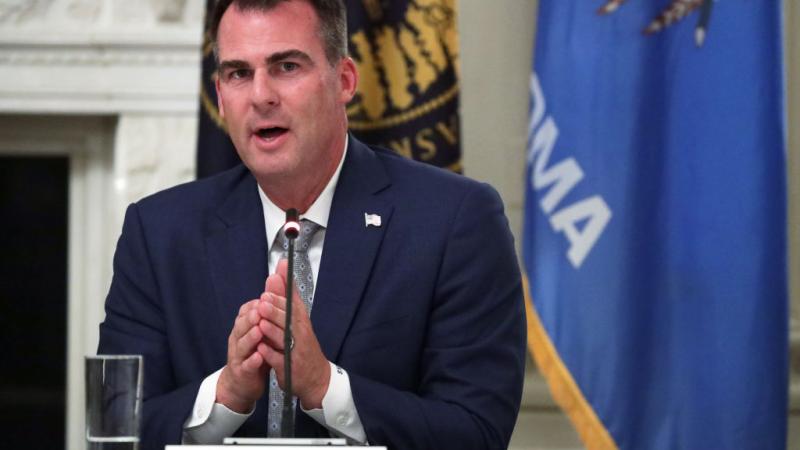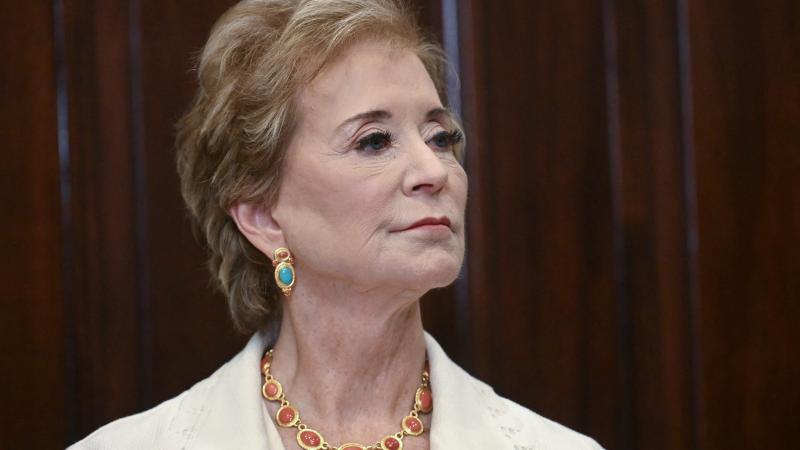Religious schools sue Maine for 'end run' around SCOTUS on school-choice discrimination
State leaders openly said they would use "human rights" law against religious schools if they tried to apply for funding, suit claims. Already trying to fix law to neuter challenge.
Maine's efforts to block "tuition assistance funding" from schools that "promote a single religion," while making it available to private secular schools, suffered a brief hiccup when the Supreme Court ruled the discrimination unconstitutional last summer.
Now the state is facing at least two federal lawsuits by families and schools dissuaded from seeking state funding under a "poison pill" approved by the Legislature and threats from the Maine Human Rights Commission (MHRC) while the high court considered whether to take the case.
The Roman Catholic diocese of Portland, its only high school St. Dominic Academy and a Catholic family that wants to send their daughter to the 26-time state hockey champion allege that these moves were an "end run" around the expected ruling from the high court, according to their lawyers at the religious liberty law firm Becket.
The state's revised Human Rights Act prevents religious schools in the tuition program from preferring their own faith – not an issue for theologically liberal participants such as the "spiritual" Maine Coast Waldorf School – while removing an exemption that lets them handle sexual orientation and gender identity issues in line with their faith.
This means St. Dominic "can’t have Mass unless it also allows a Baptist revival meeting" and must take orders from MHRC on how to teach "marriage, gender, and family life" if it wants to participate in the tuition program, Becket said.
"The Commission’s rules compelling schools to enforce students’ preferred pronouns – regardless of their parents’ wishes, and without reference to the student’s biological sex – would require Diocesan schools to discipline staff and students" who abide by Pope Francis's teaching on the inseparability of biological sex and gender identity, the June 13 complaint reads.
These provisions do not apply to "non-religious, single-sex private schools," private, postsecondary schools or "public and private schools outside of Maine" under the tuition program. The suit documents out-of-state payments as far away as California and also across the border in Canada.
First Liberty Institute filed suit on behalf of Crosspoint Church and its Bangor Christian School on the same grounds in March, as well as a motion for preliminary injunction.
While Maine denied the revised law was a "poison pill" in its May 12 answer, the church's reply brief for its motion states, "The state unsuccessfully sought to avoid an injunction" after SCOTUS ruled "by highlighting the poison pill’s deterrent effect" as a Sword of Damocles hanging over religious schools, and changed its tune only when the church sued.
The court has yet to rule on the church's motion more than two months later, though it has already scheduled a trial to start Jan. 2. The discovery deadline is Oct. 2.
The so-called Blaine Amendments that three in four states have adopted, to single out religious schools for exclusion from school-choice programs, have their roots in an unsuccessful federal constitutional amendment proposed by 19th century Maine congressman James Blaine.
The Supreme Court presumptively frowned on them in a 2020 ruling striking down Montana's prohibition on religious schools participating in a tax credit program, affirming such laws were rooted in anti-Catholic bigotry and that "sectarian" is code for "Catholic."
Maine's peculiar school choice law, however, did not prohibit funds for "sectarian" schools in the heavily rural state for more than 100 years.
The Legislature changed that four decades ago, following a non-binding opinion by its attorney general that "pervasively religious" schools must be excluded. That provoked five legal challenges before SCOTUS cut the rug out from Maine in a 2017 ruling prohibiting the exclusion of a religious school from a state grant program.
Rather than relent, the state "doubled down" by using MHRC to circumvent an expected challenge, the complaint reads.
The quasi-independent agency, appointed by the governor and confirmed by the Legislature, acknowledged SCOTUS might review the law when it asked lawmakers to reject a bill that it said would let religious schools "fire a teacher or expel a student who is LGBTQ" while receiving state funds.
This was tantamount to saying "religious schools that accept public funds lose their religious hiring rights" under existing state law, Becket's suit says, and the commission knew this interpretation "would discourage" them from applying.
State leaders also threatened to remove religious exemptions for schools that tried to participate in the program after the parties sued, creating a Catch-22 that would deprive them legal standing because schools would never give up their religious hiring rights to participate, the suit says.
These "open and blatant" attempts to "get out from under the clear pronouncement" of SCOTUS continued even after Crosspoint sued in March, according to the complaint.
Lawmakers introduced a bill to remove an exemption from the Human Rights Act for single-sex private schools a month after Crosspoint Church noted the selective treatment. It passed the Legislature with MHRC's support and is now awaiting the signature of Democrat Gov. Janet Mills. Becket claims this was intended to "strengthen their arguments" against Crosspoint.
The suit alleges unconstitutional "religious targeting" as evidenced by Maine Attorney General Aaron Frey's repeated statements about how the state would circumvent both an expected and actual SCOTUS ruling against the program's conditions, to ensure that "public money is not used to promote discrimination, intolerance, and bigotry."
Frey's office told Just the News it doesn't comment on pending litigation.
Other constitutional claims include "categorical exclusion from otherwise available government benefits" and "not generally applicable" provisions because of the exemption for single-sex private schools, the subject of the bill on Mills' desk. The state is also violating the First Amendment's ministerial exception, "religious autonomy" rights, and proscription on "excessive entanglement" with religion and "unconstitutional conditions" on state benefits.
The Facts Inside Our Reporter's Notebook
Videos
Links
- Supreme Court ruled the discrimination unconstitutional last summer
- "poison pill" approved by the Legislature
- 26-time state hockey champion
- "end run" around the expected ruling
- revised Human Rights Act
- "spiritual" Maine Coast Waldorf School
- June 13 complaint
- First Liberty Institute filed suit
- three in four states have adopted
- 2020 ruling striking down Montana's prohibition
- 2017 ruling prohibiting the exclusion of a religious school from a state grant program
- asked lawmakers to reject a bill
















